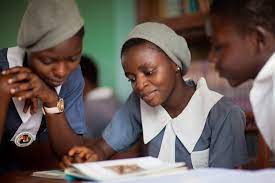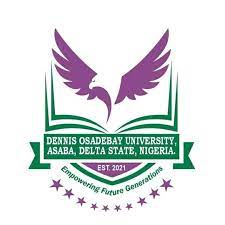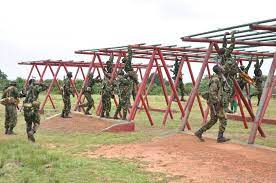
The Nigerian education system keeps on receiving serious dents from politicians and things keep on getting worse each day. There are even indications that things will end up getting worse if something is not done very fast.
The quality of education can only improve if it is wrenched from the control of the politicians. The country can only grow as far as education is concerned if there is an equal education and we can never hope for improved education quality if the status quo is maintained with thy politicians still in full swing, the chance of growth or development in the education system is very slim.
In the remaining part of this write-up, we are going to show you some of the many political issues that are quickly eroding the quality of education in Nigeria today.
Safety issue
Both public and private education institutions in Nigeria are suffering from the problem of insecurity and it is unfortunate that politicians are more interested in playing politics with the issue of security, thereby further endangering the lives of the students and creating fear in their minds as regards going to school. Even their teachers are too scared to show up in school and teach the students because they fear for their lives.
Kidnapping is one other issue coming up in schools. There are reports of bandits and kidnappers invading schools to carry hundreds of students into captivity. Unfortunately, the government seems to be too weak to do anything about it. Even in cases where th3e military claimed that they rescued students, such claims got disputed and refuted via other quarters, thereby rendering the military’s claim untenable.
The military also lay claim to rescuing the students to play politics. It seems everyone is only focused on gaining more popularity from the unfortunate circumstances the students find themselves in.
Education funding problems
While the issue of safety and security affects both private and public institutions, the issue of funding by the government seems to affect only public institutions. This aspect of things is also heavily politicized by the politicians. For example, school funding may be done according to a geographical section of the country.
This means that some sectors of the country can end up getting more funding than some other sectors.
Even in cases where the funds are allocated equally, the politicians may fail to disburse the funds to the right quarters and use them for the intended purposes. As a result, the intended projects will not be carried out and the quality of education will not improve as expected.
Many Nigerian politicians are known to divert funds meant for financing education for personal use. This has repeatedly impacted education negatively in Nigeria.
Effectiveness of disciplinary actions
Virtually every aspect of the Nigerian education system is politicized, including the disciplinary aspect of things. Unfortunately, some students are deemed to be above reproach, not as if they do not commit atrocities, but because they are recognized as the children of “big people” or popular politicians and, therefore, must not be touched or disciplined. Such kids can do anything they deem fit without anyone asking questions.
This successfully creates a bias that will render the quality of discipline in that institution of learning questionable.
Such “special kids” cannot be expected to be serious or committed to learning and this can rub off on other kids in the school, thereby causing a big problem in the quality of education in that institution.
Some teachers take a liking to certain students and will, therefore, not punish such students, whereas they mete out punishment to other students. Such a disposition of the teachers will only create division among the students and the quality of teaching will become lopsided.
This is to say that the negative impact of politics in the Nigerian education system does not only the doing of politicians but also the school authority.
Curriculum adopted
So many things happen behind the scene before education curriculums are designed in Nigeria. Some government officials want certain reading materials to be included as part of the curriculum and will do anything within their powers to ensure such books are included, even if such books are not the best for the students.
The game of politics played in the education sector usually has its basis on the endemic corruption Nigerians have to deal with. For example, a publisher that wants his materials to be included in the curriculum may have to bribe his way to the hearts of education policymakers and those who design school curriculums.
As a result, the students will end up studying that material, not because it can positively impact them but because the author has successfully bribed his way to the hearts of those who are at the top. This can only further reduce the quality of education in Nigeria.
Entrance examination scores are not left behind
There is a huge gap between the admission requirements into secondary schools in Nigeria between the south and the north. For example, the cut-off mark for admission into Unity Schools across the federation is very high in the south and very low in the north; it is all about playing politics.
The Unity School cut-off mark for Anambra State, for example, is 134, while the unity school cut of mark for Kebbi State for males is 9 and that of females is 20. In fact, the score goes even lower in Zamfara State, where the Unity School cut-off mark for male students is 4 and that of female students is 2.
Sit back for a while and imagine the wide gap between the scores. It is even more interesting to realize that the student sits for the same kind of examination, set using the same kind of syllabus and the questions are also the same all over the country. This is a perfect example of politics taking over the Nigerian education system and doing great damage to it.
It leaves little to the imagination as regards the quality of students completing primary education in the northern part of the country when compared to what obtains in the southern part. The quality of secondary education in the north also begs for improvement al thanks to the deeper interest in politics than progress.























